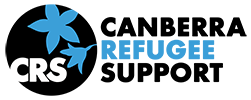Supporting the settlement of refugees in our national capital
Information
 Refugee Council of Austalia The Refugee Council of Australia (RCOA) is the national umbrella body for refugees and people seeking asylum and those who support them. They have around 200 organisational and over 1,000 individual members. They are a nonprofit organisation which is completely independent of government. |
Where to Get Help
Immigration
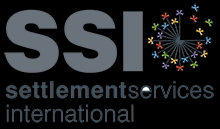 Immigration Advice and Application Assistance Scheme The Immigration Advice and Application Assistance Scheme (IAAAS) offers advice about, or assistance with, applications for eligible people at no charge. |
Torture and Trauma
 Companion House Companion House, a non profit community based organisation, works with people who have sought refuge in Australia from persecution, torture and war related trauma. Most of the people Companion House works with are asylum seekers or from a refugee background. |
Additional Links
 ACT Human Rights Commission The ACT Human Rights Commission was established in 2005 to promote and protect the rights and wellbeing of all people living in the Australian Capital Territory. The Commission is an independent statutory agency established by the Human Rights Commission Act 2005. | 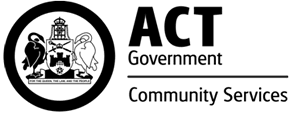 ACT Office of Multicultural Affairs The Office of Multicultural Affairs provides strategic advice to the Minister for Multicultural Affairs on issues affecting people from culturally and linguistically diverse backgrounds. The aim of this advice is to promote multiculturalism in the ACT – multiculturalism is the right of all Canberrans to express and share their cultural heritage within the Territory’s legal and social frameworks and to contribute to, and participate in, all levels of public life without prejudice or discrimination. |
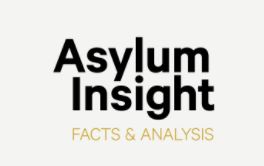 Asylum Insight Asylum Insight provides facts and analysis on Australian asylum policy with an international angle. Established in Melbourne in 2013, Asylum Insight are an independent non-profit organisation committed to the principles of international human rights law, independence, and informed public discourse. | 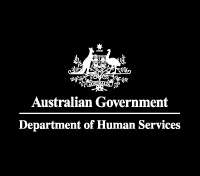 Centrelink Centrelink is a government agency delivering services, programs and payments to the Australian community. |
 Companion House Companion House, a non profit community based organisation, works with people who have sought refuge in Australia from persecution, torture and war related trauma. Most of the people Companion House works with are asylum seekers or from a refugee background. |  Department of Immigration and Border Protection DIBP – Official site for Department of Immigration and Border Protection. Information on immigration regulations in Australia. |
 Disability, Housing and Community Services ACT The ACT Department of Disability, Housing and Community Services has responsibility for a wide range of human services functions in the ACT, including multicultural affairs, community services, older people, women, public and community housing services and policy, children, youth and family support services and policy, disability policy and services, therapy services, Child and Family Centres, the ACT Government Concessions Program, homelessness, community engagement, Aboriginal and Torres Strait Islander Affairs, and community disaster recovery. |  Migrant and Refugee Settlement Services The Migrant and Refugee Settlement Services of the ACT’s Mission is to be a leader in provision of settlement and related services for migrants refugees and humanitarian entrants in the ACT and region, in a caring, supporting and enabling way. |
 Refugee Council of Austalia The Refugee Council of Australia (RCOA) is the national umbrella body for refugees and people seeking asylum and those who support them. They have around 200 organisational and over 1,000 individual members. They are a nonprofit organisation which is completely independent of government. |  St Vincent de Paul Society Canberra/Goulburn The St Vincent de Paul Society in Australia has more than 60,000 members and volunteers, who work hard to assist people in need and combat social injustice across Australia. Internationally, the Society operates in 153 countries and has over 800,000 members. |
